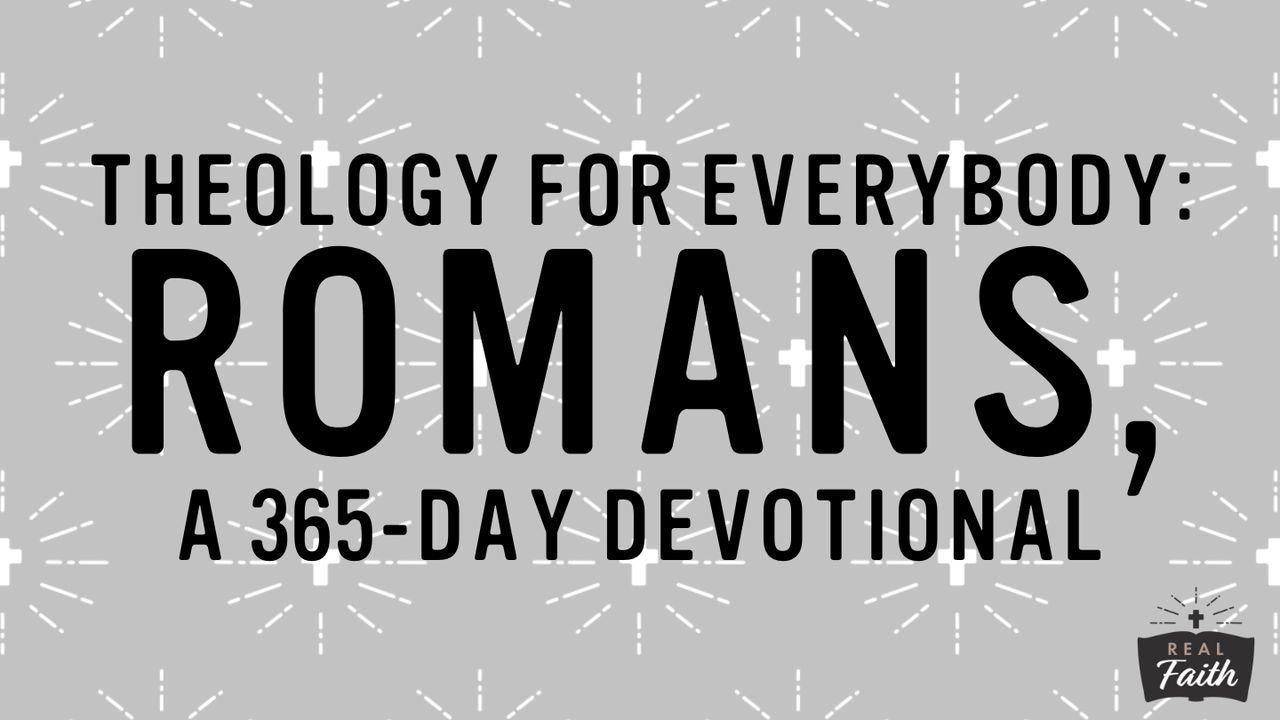Theology for Everybody: RomansSample

I used to travel across the country and around the world to preach, and one of the requests I made for wherever I preached was that Grace and our five kids could accompany me. The kids became accustomed to traveling, and they were very well-behaved. They knew that international travel came with long lines, passport verifications, and security stops. So when we traveled in the US, they were surprised we didn’t have to do anything to go from one state to the next. I told them, “You just drive right in.”
Christianity can be thought of in terms of national borders and state borders. If you leave the national borders of Christianity, then you are leaving the faith and going into another religion. State borders allow Christians to have various opinions and perspectives while still being part of the same nation (the Kingdom of God). In Romans 16:17, Paul writes, “I appeal to you, brothers, to watch out for those who cause divisions and create obstacles contrary to the doctrine that you have been taught; avoid them.” Some people work for unity, but others work for division. Some people want to unite believers, but others want to tear believers apart.
Doctrine is what God says is true. For Christians, there are borders and boundaries, such as the doctrine of the Trinity. If you believe in a God other than the Trinity, you have crossed a border and entered into a different belief system. The same is true if you don’t believe in the Bible, the divinity and humanity of Jesus, and the gospel. If Jesus isn’t the focal point of your faith, then you have crossed a national border.
There are two ways to find yourself in that position. Number one, you’re a non-Christian in another religion, ideology, or spirituality. Number two, you start as a professing Christian, then abandon some Christian beliefs and cross over that border. We call that apostasy. Right now, a wholesale generational apostasy is going on, especially among many younger people and those with a social justice awareness and conscience in what I would call “wokeism,” which is a counterfeit to being born again. Many people would say they are Christians but then cross over certain boundaries and leave Christian beliefs. We need to know where those boundaries are because these are issues that are important and significant. I may love you, but I can’t agree with you. I can’t worship with you because now you’ve entered into another religious commitment.
Within Christianity, there are not only doctrines but also opinions. These are like state borders. Different people want to live here and do things this way or that way. Look at the United States and think of it in terms of the Christian church. We have the Lutherans, the Presbyterians, the Baptists, and the Pentecostals (just to name a few). Christians can have various views and move from “state” to “state” under the same national boundaries.
Paul says it this way in Romans 14:1: “As for the one who is weak in faith, welcome him, but not to quarrel over opinions.” There’s a difference between God’s doctrines and your opinions. Some people make everything opinions—“God doesn’t have opinions. God has doctrines.” Other people say, “Well, my opinion doesn’t need to be God’s doctrines.” What does God say? “I have my own doctrines. Those are your opinions.”
When we are in relationships with people, the question is, Is this a doctrine or an opinion? Is this an issue so big that it could jeopardize the relationship, or is it a minor item we just need to overlook because the relationship is more important than the issue?
Today’s Reflection
What “state” boundaries do you explore in your faith?
Scripture
About this Plan

After Pastor Mark got saved in his college dorm room reading the book of Romans, this 365-day devotional is the culmination of more than 30 years of studying this incredible book. Chapter-by-chapter, verse-by-verse, this book digs into topics covered in the great book of Romans, such as justification, grace, predestination, legalism, deconstruction, and more.
More
We would like to thank Mark Driscoll for providing this plan. For more information, please visit: https://realfaith.com









